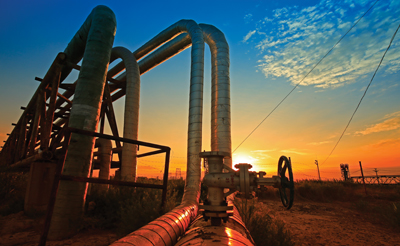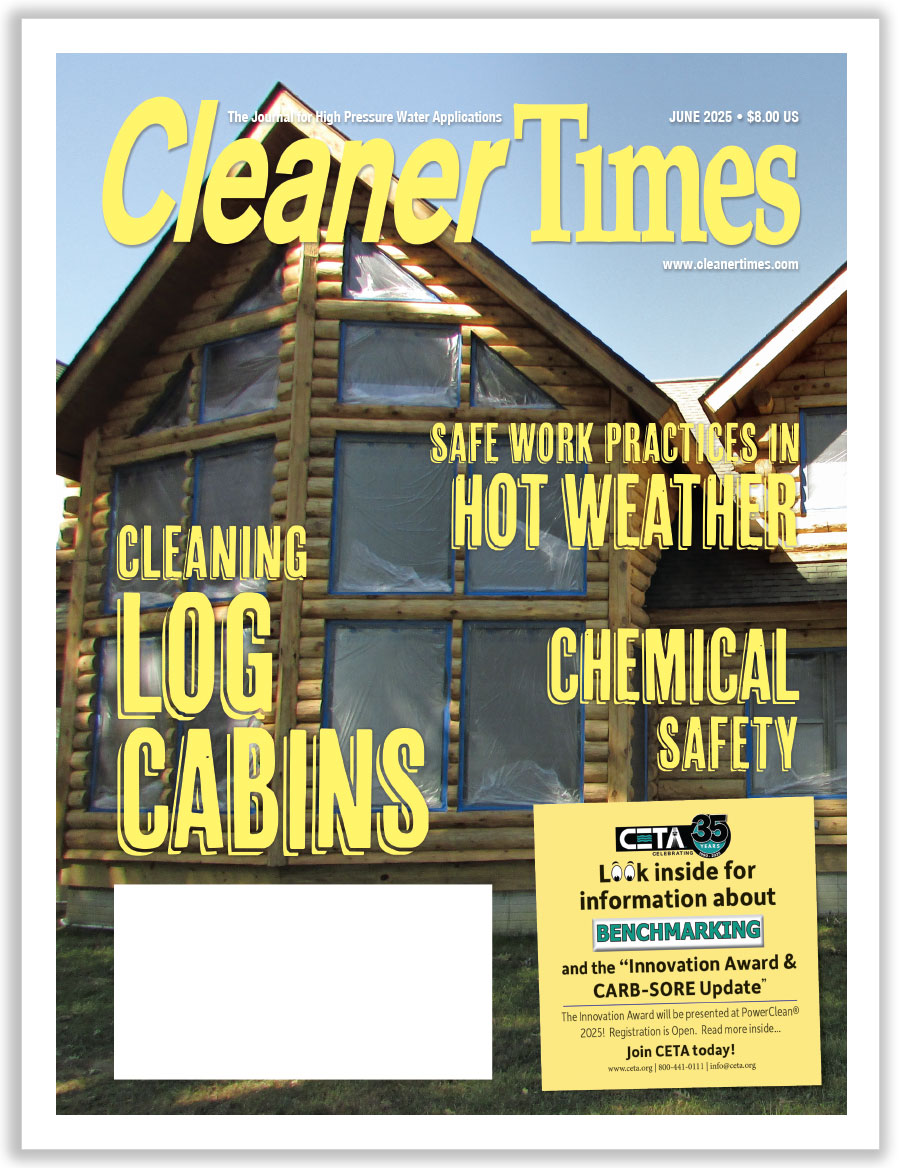
Selling to the Oil and Gas Industry
by Diane M. Calabrese / Published September 2023

Oil and gas are not going the way of horses and buggies any time soon. The sector remains strong and vital to the U.S. economy.
Look to the U.S. Energy Information Administration (EIA.gov), which provides unadorned data and statistics as well as analyses, to verify the industry’s vigor. The summary in the next two paragraphs derives from the most recent EIA data.
U.S. petroleum production (crude oil, natural gas liquids, renewable fuels, and processing gains) at the beginning of this decade neared 19 million barrels per day (b/d). Crude oil produced in the United States accounts for more than 11 million b/d of that amount. Texas ranks as the top crude oil producing state (more than 4.7 million b/d).
Imports of both crude (more than 3.7 million b/d) and petroleum (more than 4.3 million b/d) from Canada far exceed those from OPEC. (Together, the crude and petroleum coming to the United States via OPEC totals less than one million b/d).
But what about the Inflation Reduction Act (IRA) and its emphasis on moving the nation away from fossil fuels? For clarity on the effect of the push from the IRA, consult the March 16, 2023, “Issues in Focus” from EIA. Funds being dispersed to invigorate green technologies will result in more of a nudge away from than a fatal punch to oil and gas (https://www.eia.gov/outlooks/aeo/IIF_IRA).
It’s not time for those who sell to the oil and gas industry to fret. Opportunity abounds. Of course, that does not mean that selling to the industry is simple; it’s not. Yet the adage about the greater the effort the greater the reward does apply most of the time.
Good Partners
“Oil and gas companies are very loyal companies to do business with,” says Roy G. Chappell, CEO of Chappell Supply and Equipment in Oklahoma City, OK. “As long as you take good care of their needs in a timely matter, they don’t shop around on you.”
The constancy comes because oil and companies have clarity about their needs, which are many. The needs list begins with a reliable partner.
“Oil and gas companies want quality and good service,” explains Chappell. “It is best if you can provide the service within 24 hours.” And 24 hours may prove to be too long. “In a lot of the service calls, they need it within 24 hours or less,” says Chappell.
Moreover, one requirement can lead to another. All must be met in as rapid-as-possible succession.
“If the drilling rig is down due to something failing, they have a cleanup or wash-down that needs to be done also,” says Chappell. “We keep 16 to 20 trailer-mounted pressure washers built up and ready to go—at all times—for rental. In most cases they want two-gun units at 8 to 10 gpm and 3000 psi to clean up the rig.”
Interruptions are familiar in every industry, but in the oil and gas industry, avoiding them comes second only to resolving them quickly when they do occur.
“In the winter they need units to keep the mud lines from freezing up,” says Chappell. “They wrap the pressure washer hoses around the mud lines and keep the water flowing to provide the heat needed so lines don’t freeze up. If those lines freeze up, the rig is down, and they cannot drill. Lost production time they cannot charge for.”
Everything we do provides a chance to gain new knowledge. The oil and gas industry provides plenty of doing—and knowledge building.
Chappell shares one learning experience. The customer purchased several electric units for their drilling rigs, and Chappell’s company installed the units in the housing (“dog houses”) on each rig. There were instant on/off settings with hoses going to different locations on the rig and a ball valve at each different location to allow hoses to be used for washing. Problems soon began with pressure too low or too high.
Why? “Someone was going in and adjusting the unloaders thinking they could clean faster with more pressure,” explains Chappell. “So we talked the drilling superintendent into building an expanded metal cage around each of the units with a lock on the doors. This way no one could get into the units and adjust them. That took care of the problem.”
As with any job, particularly a job in the oil and gas sector, the priority is safety, says Chappell. Working on a project means knowing and following the safety requirements established by the client. That includes checkout every time one leaves the client’s site.
High Expectations
It “is just what we do,” says Roy Pennington about his more than 20 years’ experience working with companies in the United States, Canada, Saudi Arabia, Brazil, Mexico, New Zealand, and the Far East. Pennington owns Hi Pressure Cleaning Systems Inc. in Houma, LA.
The “dazzle of finally getting the purchase order has worn off” over time, says Pennington, but the
importance of the sector leads him to two observations with the caveat that he is a positive person (and a realist).
Here’s the first observation: “This is not a market I would want to attempt to break into today,” says Pennington. He gives us a list of the “many hoops” anyone will “have to jump through” to visit various customers.
One “must have an appointment and confirmation to just get past the armed guard and receptionist at the entry to a corporate office,” says Pennington. “After that one must check in with proper ID, photo, confirmation of whom you are visiting, and a dated visitor’s tag that must be worn.”
Then there’s more, explains Pennington. It’s possible the vendor will “have to execute non-disclosure agreements to just go ‘upstairs.’”
Expect never to be left alone (for security reasons). For instance, “The person you are meeting with must come down and escort you upstairs and back out,” says Pennington. “Even with a confirmed appointment, on occasion the person we were seeing could not bring us upstairs but could meet with us in the lobby of headquarters and talk there.”
Here’s the second observation: “To anyone wanting to ‘crack into the international drilling supply chain,’ I offer the following: ‘Sorry, Charlie, but only the best tuna get to be StarKist® tuna,” says Pennington, recalling a well-known ad. Yes, the competition is intense.
So how did Pennington break into the market? Two decades ago, his company was marketing an electric, intrinsically safe/explosion-proof, hot-water pressure washer specific to the drilling industry, he explains.
In a bit of intrigue, a drill ship that had once been owned by Howard Hughes and used by the CIA needed one of the electric pressure washers for a refurbishing project. “It took our company more than eight months of back and forth, answering questions, providing certifications, providing quotes, and variants offered before we were told we had the order and ‘Can we get the equipment in two weeks?’” explains Pennington
Purchasing agents at drilling companies move around; and when they do, they often seek out a known entity. That has worked out well for Pennington’s company.
“Due to our proven due diligence, attention to detail, and response to emails 24/7, many a purchasing agent ‘took us with him to the new drilling company’ and got us approved as a vendor,” says Pennington. “This has happened numerous times, so our initial contacts have morphed into dealing with 8 to 10 drilling companies.”
There is also inventory management to consider. “It can be a major headache,” says Pennington. “On occasion we have kept in stock two or more of these $20K machines for as long as 18 months, just so we can reply, “Got it in stock, it can go today.”
Working in the oil and gas sector also consumes many hours. “Time is another hurdle you have to be prepared for,” says Pennington. “An initial contact from a buyer will evolve into multiple conversations and emails with engineering, safety coordinators, rig hands, and electrical engineers.”
Be committed to putting in the time and then waiting patiently for the results of invested hours. It could be months and months. Pennington says, though, that the wait can bring very satisfying results in terms of a big sale, one in the celebratory category.
There are gains and losses. It’s business, but the oil and gas industry is a big one—with many vendors calling.
Purchasing agents may want to be taken to dinner at a place they have always wanted to try—not the most economical. And sometimes, a meeting just gets scrubbed for all sorts of reasons.
“Recently, two of us flew in overnight in order to take six purchasing agents to lunch the next day
and then planned on flying back to New Orleans after lunch,” says Pennington. “The night before lunch, a big weather issue caused power outages, and we were told at nine the next morning, “Sorry, power’s out at the office; we are not coming in, and we can’t make it to lunch.”
Be prepared. Meet expectations and be flexible.






